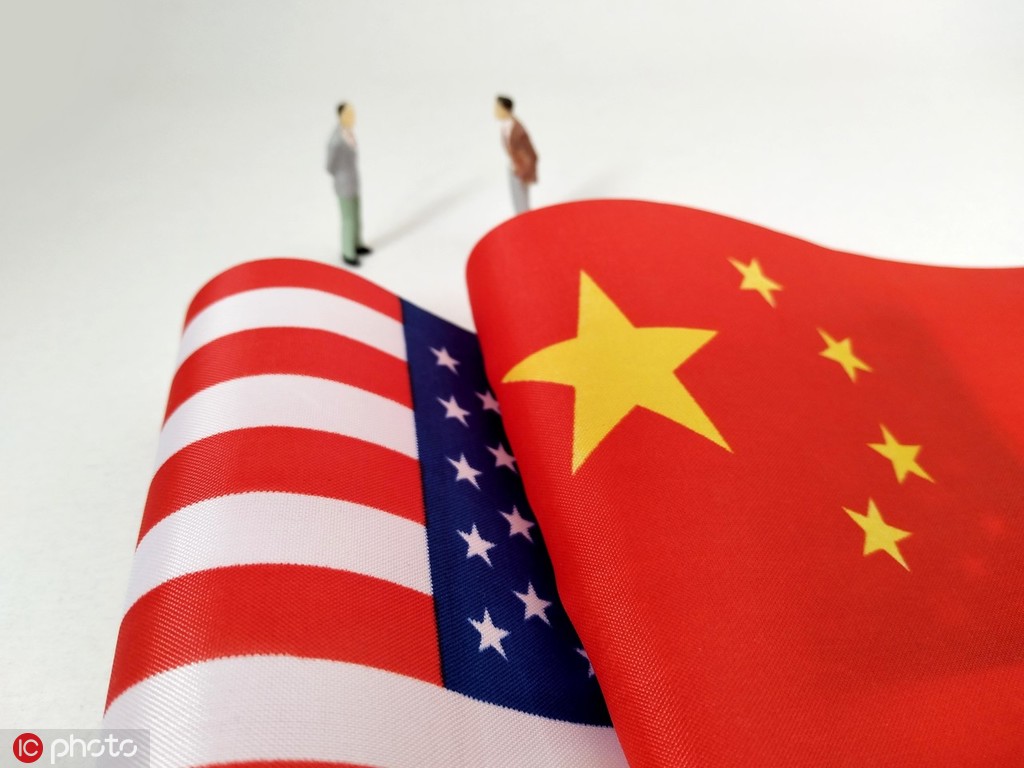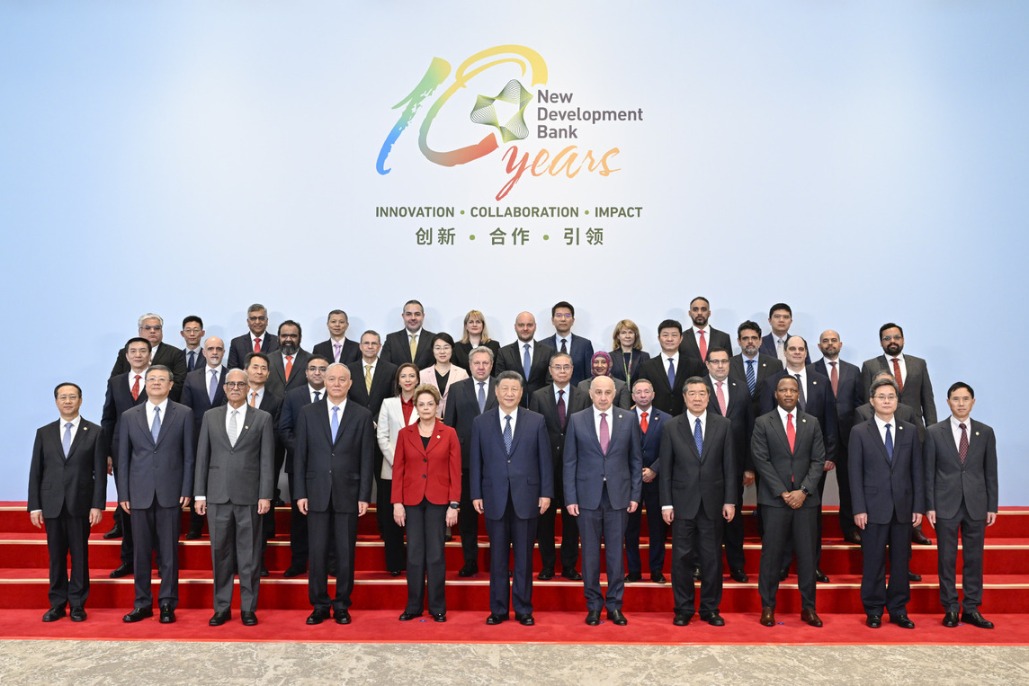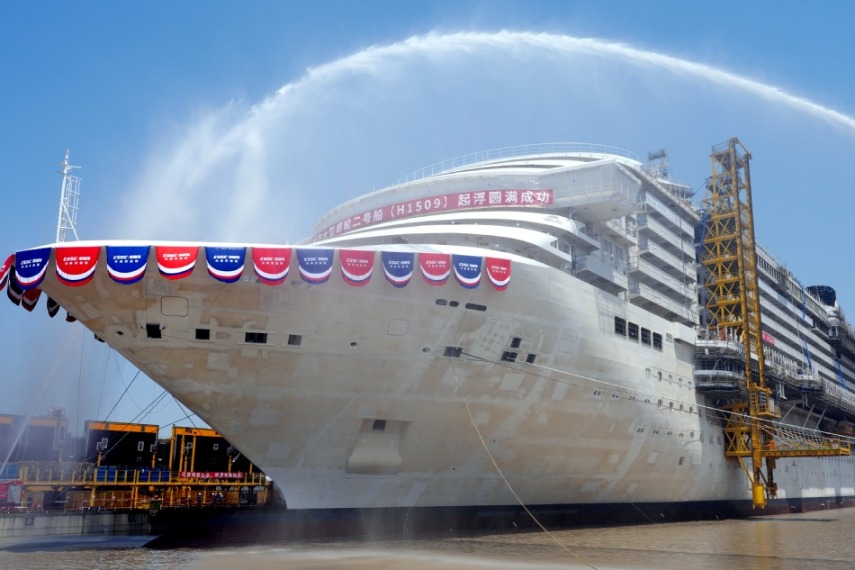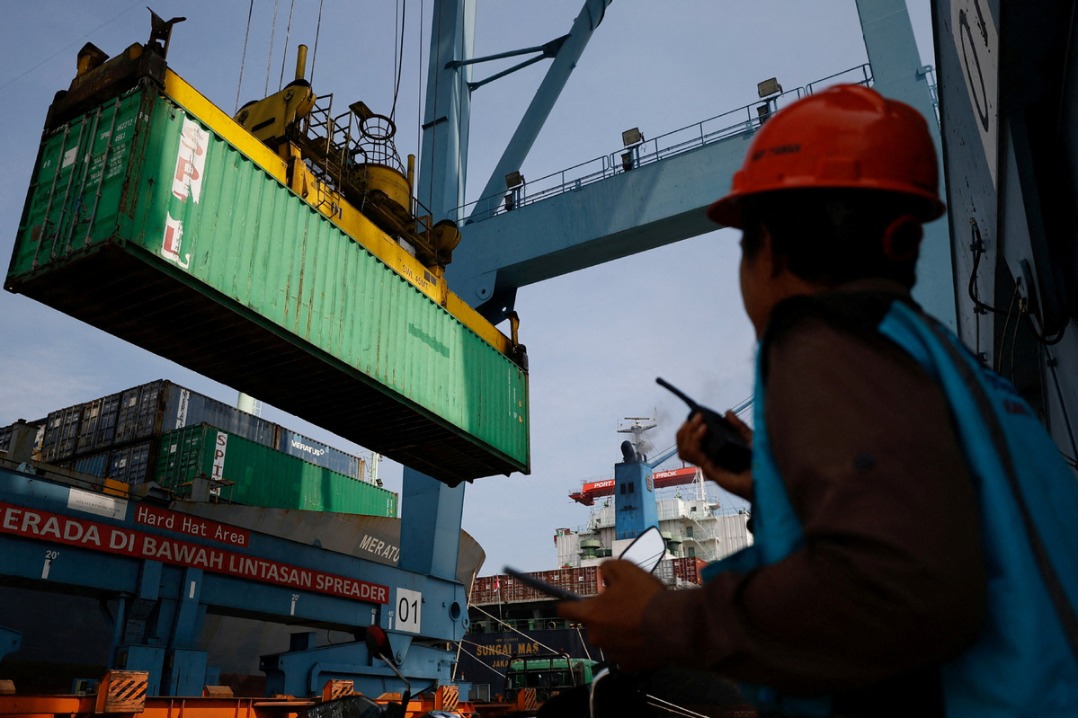China will help boost companies' response to risks
By REN XIAOJIN AND CAI HONG | China Daily Global | Updated: 2019-05-24 09:10

"For the US, which prides itself as a leading player in the global economy, it would not want to tolerate and rely on the presence of (global value chains) led by China," Lim added. "However, it is undeniable that the US is already relying on the China-led (global value chain): It is China's biggest importer."
"Looking back, China completed its catch-up strategy in pursuit of industrialization by imitating the technology of advanced countries in the early stage of opening up, and has now begun implementing the so-called leapfrogging strategy, a dynamic comparative advantage strategy that overtook advanced countries," Lim added.
Meanwhile, in a bid to reestablish the financial order that resulted from the Bretton Woods agreement of 1944, which set up a new global monetary system "designed by Anglo-Saxon countries based on the rapid growth of the manufacturing industry," Lim said, "China launched a new financial order called the Asian Infrastructure Investment Bank in 2016 after the (International Monetary Fund) and World Bank failed to respond to changes.
"The Asian Development Bank, founded in 1966, has only 68 member countries, but the AIIB has gained 97 members in its first three years. Also, sources say the investment volume reached $10 billion by the end of April 2019," Lim said.
Nouriel Roubini, in a syndicated article published by British newspaper The Guardian, said, "The global consequences of a Sino-US cold war would be even more severe than those of the Cold War between the US and the Soviet Union.
"Whereas the Soviet Union was a declining power with a failing economic model, China will soon become the world's largest economy, and will continue to grow from there," said Roubini, a professor at the Stern School of Business of New York University and CEO of Roubini Macro Associates.
"Moreover, the US and the Soviet Union traded very little with each other, whereas China is fully integrated in the global trading and investing system, and deeply intertwined with the US, in particular," Roubini wrote.
Roubini said a full-scale cold war "thus could trigger a new stage of 'deglobalization', or at least a division of the global economy into two incompatible economic blocs. In either scenario, trade in goods, services, capital, labor, technology and data would be severely restricted, and the digital realm would become a'splinternet.'
"Whatever happens, the Sino-American relationship will be the key geopolitical issue of this century," Roubini added.
In an opinion piece in The Japan Times, Paul Goldstein, president and CEO of Pacific Tech Bridge, a consultancy based in Arlington, Virginia, that specializes in global research, said the "unconventional bilateral approach" of the US "has a multilateral impact".
"By raising tariffs on $200 billion of Chinese goods, the (US leader) changed the dynamics of the US-China trade negotiations," Goldstein said.
"China's retaliation on imports from the United States also illustrates the shift in direction," he said.
"But it is important to recognize that this does not mean a deal is impossible, or even unlikely."
























